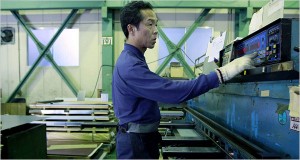For several decades, Japan has had a unique work culture whereby employees have the opportunity to stay in the same company from the start to the end of their career. These are work models of large companies that have a reputation of long work hours, building company loyalty and strong devotion to one’s company. This model is said to have originated from the 1920s when the major corporations of the rising middle class began to attain the same prestige as those of traditional feudal businesses. These new corporations would recruit and retain the best workers by offering improved benefits and lifetime job security. The 1960s brought the children of the new middle class and pursuit of employment in one of these large prestigious firms. This required the family and the individual to strive perserveringly while allocating family resources to gain the most in Japan’s competitive education system.
Long-term employment security has long been a cornerstone in the country’s corporate culture. However how beneficial has this system of lifetime employment been to the Japanese people? In times of economic recession, perhaps it might be better to shift away from lifetime employment. Should payrolls stay bloated while the country grows poor?
Referenced Sources:
1) Image: http://www.nytimes.com/2009/05/20/business/global/20zombie.html?_r=0
2) http://www.businessweek.com/managing/content/sep2009/ca2009094_141933.htm
